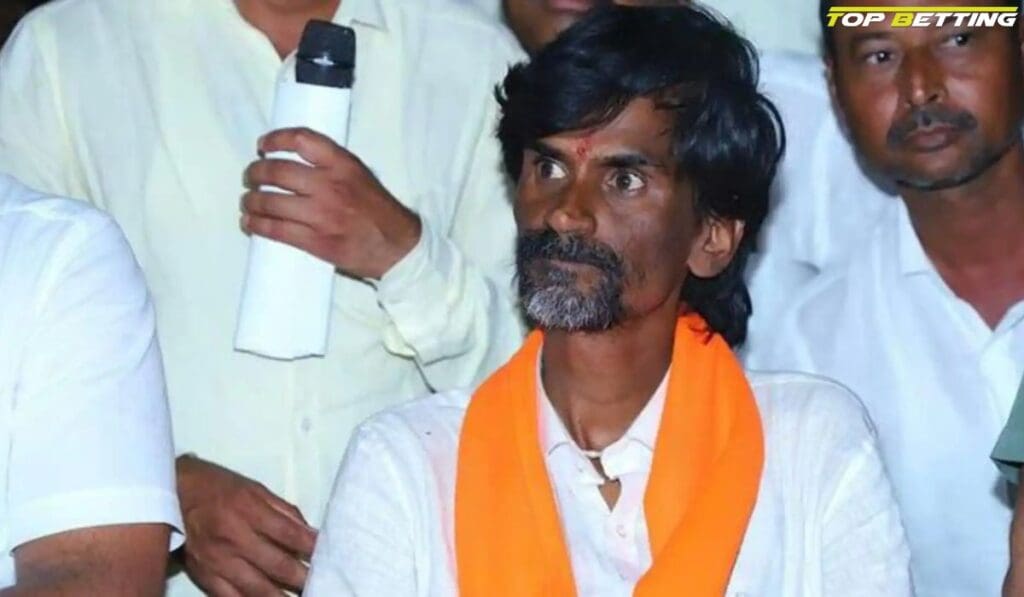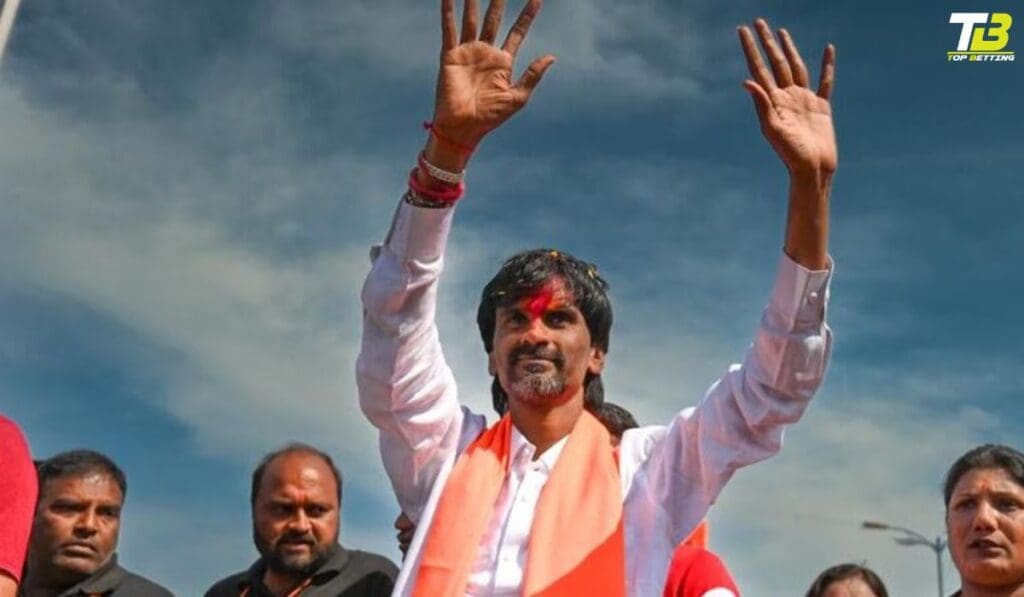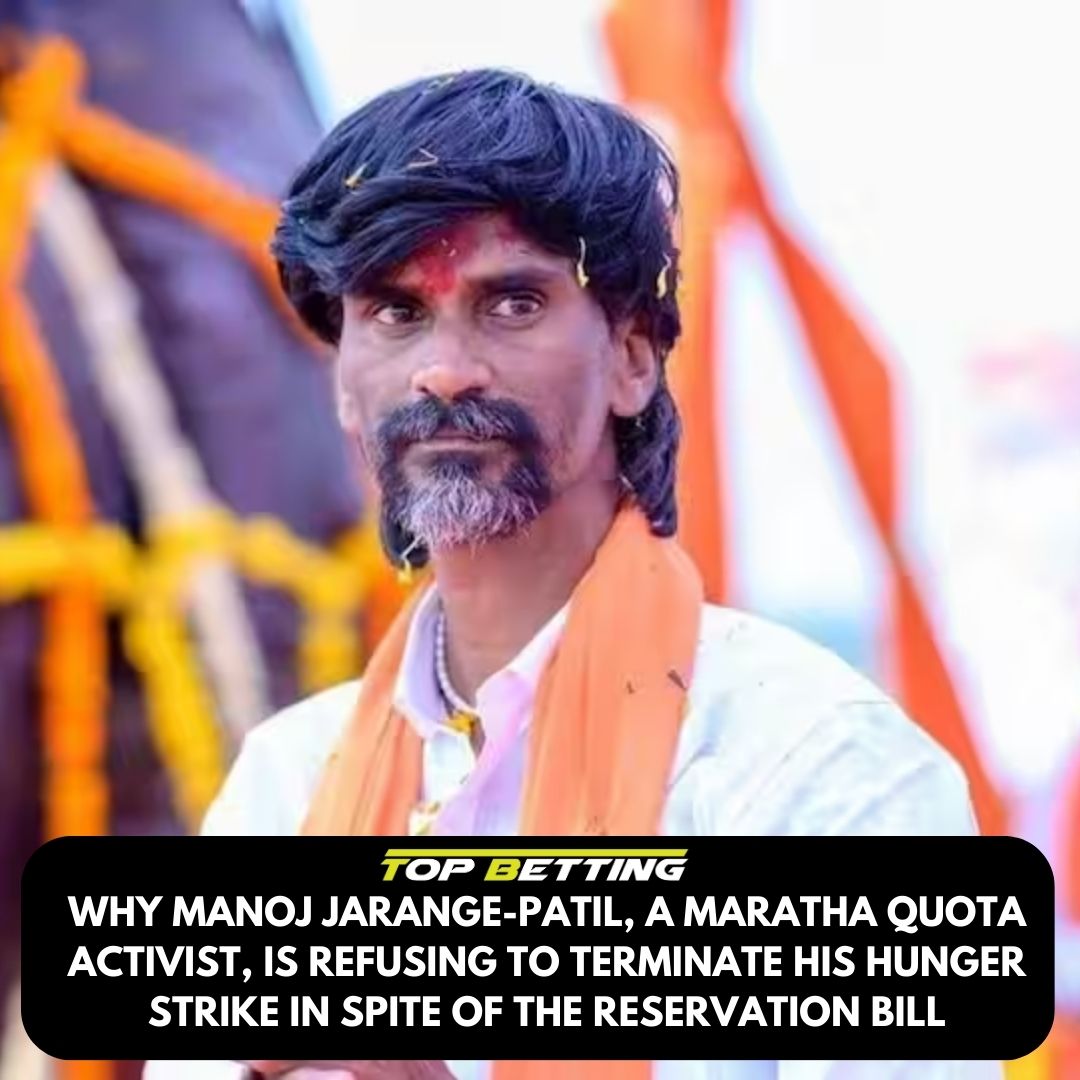
Why Manoj is refusing to end his hunger strike | An activist
Introduction
The Maratha reservation movement in Maharashtra has gained significant attention in recent years. Activist Manoj Jarange-Patil has been at the forefront of this movement, advocating for caste-based reservations for the Maratha community. Despite the introduction and passage of a reservation bill in the Maharashtra Legislative Assembly, Jarange-Patil refuses to end his hunger strike. In this article, we will delve into the reasons behind his decision and explore the implications of the reservation bill on the Maratha community.
Background of the Maratha Reservation Movement
The Maratha community in Maharashtra has long been advocating for reservations in education and employment opportunities. They argue that historical and social disadvantages have left them economically and socially marginalized. The movement gained momentum in 2018 when the Maharashtra government introduced a bill to provide reservations for Marathas under the Socially and Educationally Backward Classes Act.
The Reservation Bill and Its Controversies
The reservation bill introduced in the Maharashtra Legislative Assembly aims to extend a 10 percent reservation to Marathas, surpassing the 50 percent cap set by the Supreme Court. However, the bill has faced criticism from various quarters. Jarange-Patil, the leader of the Maratha reservation movement, has expressed his discontent with the bill, stating that it does not meet the community’s demands.
Jarange-Patil’s Demands and Disapproval of the Reservation Bill
Jarange-Patil has been on a hunger strike to protest against what he perceives as an inadequate reservation bill. He demands that reservations be provided under the Other Backward Classes (OBC) category to all Marathas, regardless of their ability to provide documented proof of their caste status. Jarange-Patil argues that the current bill only benefits a select few Marathas and leaves out the majority of the community.
The Meeting and Next Steps
Despite his disagreement with the reservation bill, Jarange-Patil has called for a meeting of the Maratha community to discuss their future course of action. The meeting aims to unite the community and devise strategies to fight for their rightful reservations. Jarange-Patil remains firm in his demand for “Sage Soyare,” a law that would grant reservations to all Marathas, irrespective of their caste status.
Government’s Response and Support
The Maharashtra government, led by Chief Minister Eknath Shinde, has expressed its support for the reservation bill and the Maratha community’s demands. Shinde emphasizes that he is the Chief Minister for all communities and does not discriminate based on caste or religion. He assures the Maratha community that their reservations will be upheld and implemented.
Legal Challenges and the Supreme Court’s Involvement
The Maratha reservation movement has faced legal challenges in the past. In 2021, the Supreme Court struck down reservations for the Maratha community, citing the breach of the 50 percent reservation limit. This setback has further fueled the determination of activists like Jarange-Patil to fight for their rights.
The Role of Opposition Parties
The opposition parties in Maharashtra have also shown their support for the Maratha community’s reservation demands. Vijay Wadettiwar, the Leader of Opposition in the state assembly, has voiced his agreement with the reservation bill and the need to provide reservations to the Marathas.

The reservations that Patil is requesting are
The ability to register a Kunbi should also extend to one’s biological relatives.
Under the OBC quota, all Maratha people should be granted reservations and be regarded as Kunbi.
Sage Soyare implementation. “Sage soyare” in Marathi means “through birth relations” as well as “through relations by marriage.” In essence, this means that a sizable portion of the Maratha population will now be eligible to receive quota benefits as Kunbis.
The Maharashtra government has determined that the Reservation Bill, which was passed on February 20, will only provide benefits to individuals who possess Kunbi documents from the Nizam rule.
“Maximum people” have been urged by the Maratha activist to come to Antarvali for the meeting. “I refuse to back down from my insistence to use Sage Soyare. Although I appreciate the reservation, it does not meet our needs.”
Patil reiterated his demand, claiming that the state government’s reservation would only “benefit 100-150 Maratha people.” “There will be no reservations for our people.”
Tomorrow, Patil will declare the next wave of agitation. He declared, “We will take what we deserve.”
The demonstrator has taken the IV drip out of his hand and is refusing to accept medical attention.
The Impact on the Maratha Community
The reservation bill, if implemented, will have a significant impact on the Maratha community. It aims to uplift the community by providing them with educational and employment opportunities. However, the reservations proposed in the bill have been met with mixed reactions within the community itself.
The Future of the Maratha Reservation Movement
The ongoing hunger strike by Jarange-Patil and the continued activism of the Maratha community highlight their determination to achieve their reservation demands. The movement has garnered widespread attention and support, making it a significant force in Maharashtra’s political landscape.

Conclusion
The Maratha reservation movement led by Manoj Jarange-Patil has brought the issue of caste-based reservations to the forefront of public discourse in Maharashtra. Despite the introduction of a reservation bill, Jarange-Patil remains steadfast in his hunger strike, demanding reservations under the OBC category for all Marathas. The future of the movement and the fate of the reservation bill remain uncertain, but the determination of the Maratha community to fight for their rights is unwavering.











